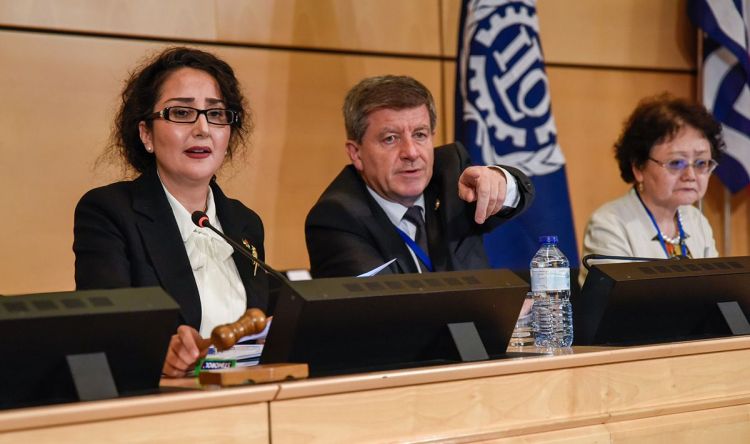Social Dialogue at the ILO: More than a nice cup of tea and a sit down

The annual conference of the International Labour Organisation (ILO) is, depending on your point of view, either: a place where the “tripartite” constituents of government, workers and employers meet to thrash out the way to achieve decent work for all, a shared goal but with divergent strategies favoured by each; or a battle ground where labour and capital lock horns and seek subtle advantage over each other.
As well as setting international labour standards, which – like the Fundamental Principles and Rights at Work – are both co-opted into hard national law and integrated into trade agreements and company policies, the ILO Conference also debates the tools used to further workers’ rights, and keeps the ILO’s policies up to date in order to best promote and support them.
Discussing social dialogue, however, has a sweet aspect no matter which interpretation of the ILO you favour: promoting social dialogue, with its prerequisite of strong, independent, representative bodies, is good news for groups of both workers and employers.
As the world order appears increasingly ragged, with violence and against trade unionists and other human right defenders on the rise, gaping democratic deficits and inequality on the rise, this year’s ILO conference, which has just ended, was a timely moment to reaffirm that social dialogue is “essential for democracy and good governance” and for driving stability and reducing inequality.
But this is not a fluffy principle that everyone can agree to because it doesn’t mean anything in the real world: the ILO has reiterated fundamental principles around social dialogue that can have tangible impacts.
Most importantly, the tripartite members at the ILO reiterated that “collective bargaining remains at the heart of social dialogue,” urging governments to respect agreements between social partners, and to promote the use of collective bargaining as the way to tackle existing workplace issues and to prepare for future ones. It was also clear that none of this is possible without strong, independent, representative unions, a firm warning to governments like our own and that of Australia, still working on legislation intended to hamstring unions and deny ordinary working people’s right to freedom of association.
A third of workers in the UK are still covered by collective bargaining agreements, but it faces steady decline, stripping workers – and their employers – of the benefits identified by the ILO. Given the challenges to traditional work coming in the form of zero hours contracts, “gig” economy work and automation, social dialogue’s ability to play “an important role in shaping the future of work” cannot be ignored. The ILO called on all its member governments to find ways to extend the benefits of collective agreements to the many workers now finding themselves in these new types of employment.
Cross border social dialogue was also identified as an “indispensable” tool for attending to the problems caused by the failures within global supply chains, with governments urged to promote this as part of efforts to help vulnerable supply chain workers facing exploitation.
Finally, the ILO – with the British government in attendance – called on its member governments to ensure that discussions with the social partners are prominent in policy making. With TUC General Secretary Frances O’Grady reporting that she has met with Chancellor Merkel of Germany more often than she has with Prime Minister May, this is a reminder that not only are unions willing to contribute to the goal of decent work and developing effective economic and social policies, but that government has an obligation to accept our offer.
It’s time to talk. The cup of tea is optional.
Stay Updated
Want to hear about our latest news and blogs?
Sign up now to get it straight to your inbox
